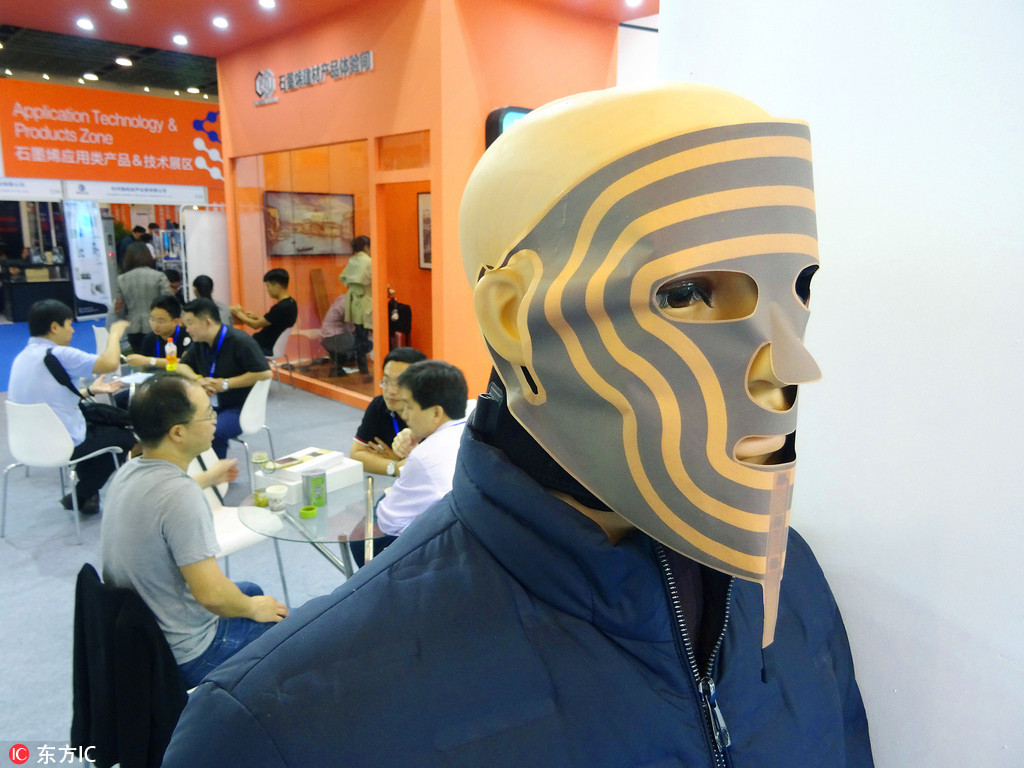Tsinghua scientists design electronic skin


Chinese scientists have developed a graphene-based tattoo-like electronic skin that could function as a wearable device to monitor a person's health.
Electronic skin refers to thin, flexible and stretchable electronic material that mimics human skin and can sense pressure, temperature and stretch.
Graphene, a superthin material with excellent flexibility and conductivity, is an ideal material for electronic skin, according to the experts.
Scientists from Tsinghua University have demonstrated how to make graphene-based electronic skin using laser scribing technology. In a process aided by water, the electronic skin is transferable not only to human bodies but also to other substrates such as leaves and silk.
It could be attached to human skin and used to measure such things as body functions - a person's breathing, heartbeat and voice, for example.
The electronic skin exhibits high sensitivity and long-term stability.
It can withstand high temperatures and is comfortable to wear, according to the scientists, whose research was published in the journal ACS Nano.
Electronic skin has huge potential in healthcare and intelligent systems, the scientists said.
They added that with laser scribing technology, the pattern of the graphene-based electronic skin can also be personalized, a feature that could help commercialization.
Xinhua
- World Television Day celebrated with conference in Shanxi
- University launches new AI department to align with national priorities
- Jilin kicks off 2025-26 snow season with grand opening event
- China hails 'hard-won' COP30 Global Mutirao decision
- China-SA science exhibition showcases innovation, cultural exchange
- China opens draft regulations on data protection to public consultation




































